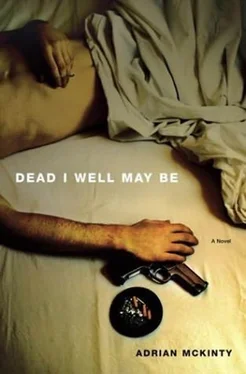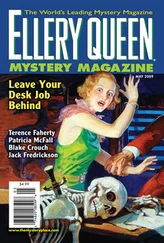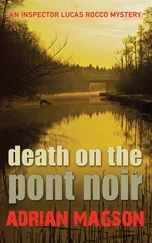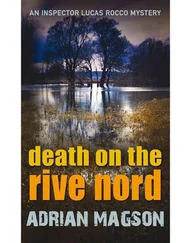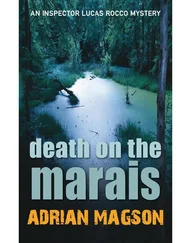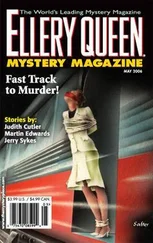In the morning we ate beans and in the evening we ate rice and beans, sometimes with a tortilla. Where the food came from was a mystery; indeed, how the men supported themselves at all was a mystery, for it seemed that they did nothing at all. A few of them spoke to me in broken English, but it was so bad and their accents so heavy I could understand very little.
Príncipe must have spun them some yarn, because they were good to me. We were all in the shit together and that was what mattered. Someone was bankrolling us, though, and later when I looked at a map and saw that I must have been in Chiapas, I came up with a few ideas. It was 1992 and within a year the American papers were filled with stories about that most southerly, poorest, and heavily Indian of Mexican states.
In the evenings two of the old guys pulled out guitars and sang long, mournful songs about sweethearts. I didn’t recognize them, but I picked them up, and when I tried a few later on Spanish-speaking friends, they knew them. One night one of the guys strummed “There’s Only One Northern Ireland,” the old football anthem from the Kop at Windsor Park, but it turned out that this was a very well-known song called “Guantanamera,” which everyone on earth had heard of except me. Seeing I was excited by it, they sang it over and over and, in what seemed like no time at all, I had learned all seven verses. The days were all the same. The sky was blue, save for a few breaths of cloud. It was cold until noon and then hot for a few hours, then cold again at night. The landscape was high desert, cacti, a few scrubby trees, boulders. Once when I went for a walk, I saw a fox.
I had been there about a week when I started to get itchy feet (itchy foot, if you want to be literal). The guys sang songs and played checkers and eked out their scant tobacco in the evenings and slept most of the day. Like I say, they did bugger-all and there was no one for me to talk to. I ate their supplies and contributed nothing, not even a decent story or two to the conversation. Things had probably cooled down sufficiently, and it was ok to move on. And I wanted to go. I had to get north, I had to get back to New York.
On a Sunday morning (half a dozen of the men had rigged up church), I rolled up my clothes and got my stick and tried to make myself understood about heading north. The headman got the picture and told me to wait till tomorrow, since a car was coming and could take me to a road-this explained in bad English and more helpfully by drawings on the dirt.
I did wait and a car did come, a green Toyota Camry with a door missing. The driver left off a sack of rice and a tiny bag of coffee. The boss explained a few things and the driver nodded. I got in and the driver didn’t ask me anything at all. He drove me down into the plains. At a road junction he stopped the car and gave me some Mexican banknotes, which I refused but he insisted upon, and told me which way to hitch.
Guatemala, he said, pointing in one direction.
United States? I asked.
El norte , he said, and pointed along a line of blue mountains. He started the car and asked with gestures if I was sure I didn’t want to head back east with him. I shook my head. He shook his and off he drove.
I stood for a while, and then I sat. Just before nightfall a dust storm in the distance showed that there was a vehicle, the only one going in any direction that day. I hobbled up on my crutch and stuck my thumb out. It was a truck with an open back and no cargo. The driver saw me from a long way off and slowed down and stopped. He opened the cab door and said something in Spanish.
Can I come up? I asked.
He nodded, and I got up beside him.
¿Habla español? he asked.
I shook my head.
Bueno , he said, and started her up.
He drove the whole of the night and shook me awake in the late morning as we arrived at a small town. I could see it was the end of the line. I asked him where north was and he showed me. I got out and thanked him, and he seemed to say that it was nothing.
The town was so full, it must have been a market day. I bought water, dates, oranges, and tortillas with one of the banknotes and got a lot of change back. I sat in the market square in the shade of a church and ate everything I had. I asked around with sign language and found a standpipe at the back of the church where it was permissible to wash. I stripped down to my boxers and cleaned myself off, much to the amusement of some small children playing nearby with a ball. If the kids hadn’t been around, I would have given my bollocks a good washing too. I air-dried and pulled on my mended jeans and a cotton smock that I’d been given in the village. I had a sandal on my good foot and a now filthy bandage on my stump. I safety-pinned the jeans back over and it was ok. I went back to the village square and found a bus stand and with much confusion explained that I was heading for the United States. This was tricky, I was told. I apparently could not get a bus straight there and should either go to Mexico City or take a bus up the coast, which would get me close but take much longer. In case of the peelers I chose not to go to Mexico City.
I got on the local bus, and we waited about three hours until it filled with passengers. It headed off, and a large woman in the seat next to me opened a black bin liner full of all her stuff and offered me a kind of sherbet to drink. She had one herself and then she produced a Madeira cake and a pot of jam. She cut me off a piece of cake and spread the jam for me too. She offered everyone on the bus a piece of her cake, and there was barely enough left for herself at the end. She told me stuff about her life and her kids and didn’t seem to mind that I couldn’t follow any of it.
The bus ride was very pleasant (especially since I wasn’t on the sun side), and we went through a scrubby desert and a few towns and, once, a pine forest. I didn’t see any coast at all and wondered if I’d gotten the wrong end of the stick somehow. In any case, we traveled for about seven or eight hours, almost everyone, including my neighbor, getting off at intervening places. We eventually stopped for good at another place similar to the one we’d left. It was a small coastal town called Puerto Arrajo on a large, curved natural harbor.
I must have screwed up, because it was the end of the line as far as the bus routes north were concerned. Exasperated, I explained to the bus station attendant that I was trying to go north and, equally exasperated, he explained that I had to go back south to Veracruz and get off and then go north from there. The bus south didn’t leave until the next day. It was evening, so I got dinner in a filthy little restaurant which served a greasy pork stew with tortillas and which became the greatest meal I had ever tasted in my life. That night I slept on the second floor of a half-built house. I woke early and got scrambled eggs for breakfast at a sort of tavern. The bus station didn’t open till eleven, so I walked around all morning (I was getting pretty handy with the crutch), took a shit in the public squat shithouse, and strolled down to the shore. I tried to take a swim but the salt water was bloody murder on my stump, so I got out and dried off.
At eleven I hit the bus station. More confusion. Apparently I had misunderstood the man yesterday, for the bus back was not coming today but tomorrow.
I began to fly into a rage, and then I stopped myself. It wouldn’t help. I wandered to the outskirts of town and stuck out my thumb again.
A truck came, and the driver picked me up. I didn’t even ask where we were going. He talked all day and into the night, and I was a good listener.
I thought the sun was coming up, but it was the wrong direction, west, and the man explained that we were in the outskirts of Mexico City. When the dawn did come, I wanted the night back. Soot, diesel fumes, a locust-colored sky. We were up high, and through the smog you could make out slums and shanties and housing estates that were conceived in the design institutes of hell.
Читать дальше
